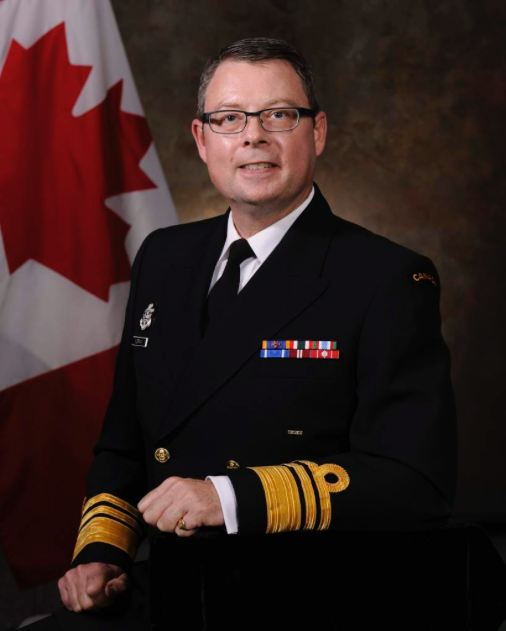
OTTAWA — Crown prosecutors have pushed back against suggestions of political interference in Vice-Admiral Mark Norman’s criminal case, saying there is no evidence to support such allegations.
The suspended military officer’s lawyers have alleged the case against their client is politically motivated and want access to documents held by Prime Minister Justin Trudeau’s office to prove it.
Crown attorney Mark Covan said Monday during the fourth day of a five-day pretrial hearing that a narrative has emerged that the RCMP, its investigation and the prosecution have been tainted by political machinations.
“There’s a suggestion being made throughout media articles — and there’s been a suggestion made here in this courtroom — that somehow the Crown has been influenced or under the suggestion of political forces,” Covan said.
But he went on to defend the independence of the RCMP investigation and prosecution, adding that the Crown had specifically asked Norman’s defence team to present any evidence to show the case had been unduly influenced.
“We made that offer to the defence on that point: ‘If you have something, we want to know what it is and we’d like to see it’,” Covan said. “There’s no evidence whatsoever to support these allegations.”
Norman was suspended as the military’s second-in-command in January 2017 and charged this past March with one count of breach of trust for allegedly leaking government secrets about a $700-million military project in 2015. He has denied any wrongdoing.
Norman’s lawyers have previously pointed to comments that Trudeau made in 2017 and this February — before the senior military officer was charged — as political interference. Trudeau said that the case would end up in court.
“The PMO may have made comments to the media, other members of Parliament may have made comments to the media,” Covan told Justice Heather Perkins-McVey.
“The question is: has that somehow infiltrated its way into the investigation or prosecution? On that point, your Honour, we submit that there’s absolutely no evidence whatsoever to substantiate such a claim.”
Norman’s team also filed as exhibits last week emails about the case between the Crown and the Privy Council Office, the top federal department, in which bureaucrats asked prosecutors for updates on witnesses and dates.
Defence lawyer Marie Henein alleged the Privy Council Office was passing information to Trudeau’s office, which she argues wants to delay Norman’s politically-sensitive trial. It is set to start in August and could be ongoing during next fall’s election campaign.
Henein wants access to potentially thousands of government documents — many of them potentially political secrets held by the Prime Minister’s Office — to prove that her client is a victim of political games.
Covan, however, countered that the Crown “walked that line appropriately” in its discussions with the Privy Council Office, and was transparent with Norman’s lawyers about any meetings or exchanges with the government.
Many of those discussions related to releasing the documents that Henein has requested, Covan said.
“The politicians may very well be aware that this case is moving through the courts, but again, there’s no suggestion that that has controlled or influenced the trial dates or witnesses.”
The Crown also attacked suggestions the RCMP dragged out what was a lengthy investigation or that it targeted Norman, saying the police started with a general investigation and followed the evidence to him.
And while leaks might regularly occur in Ottawa, Covan said, especially to the media, that doesn’t mean they are right — or legal.
In fact, he suggested officials who speak to the media on condition of anonymity know they are breaking the law.
“There appears to be a very conscientious effort to conceal these individuals,” Covan said of such anonymous sources. “And we would submit that the reason for that is obvious: They’re breaking the law.”
As for why Norman was charged while another civil servant who allegedly leaked cabinet secrets on the same project was not, Crown attorney Barbara Mercier said an investigation into the other bureaucrat is ongoing.
However, Mercier added, “We’re talking about apples and oranges,” saying the other official was a low-level employee. “He wasn’t the commander of the navy.”
After the Crown ended its arguments, Justice Canada lawyer Robert MacKinnon took issue with defence allegations the government had dragged its feet on producing the documents requested by Norman’s lawyers and blocked access to witnesses.
“All of these inaccurate statements were made with one objective in mind: to argue … that there was a bad-faith intention to delay this proceeding,” MacKinnon told the court. “There is nothing further from the truth.”